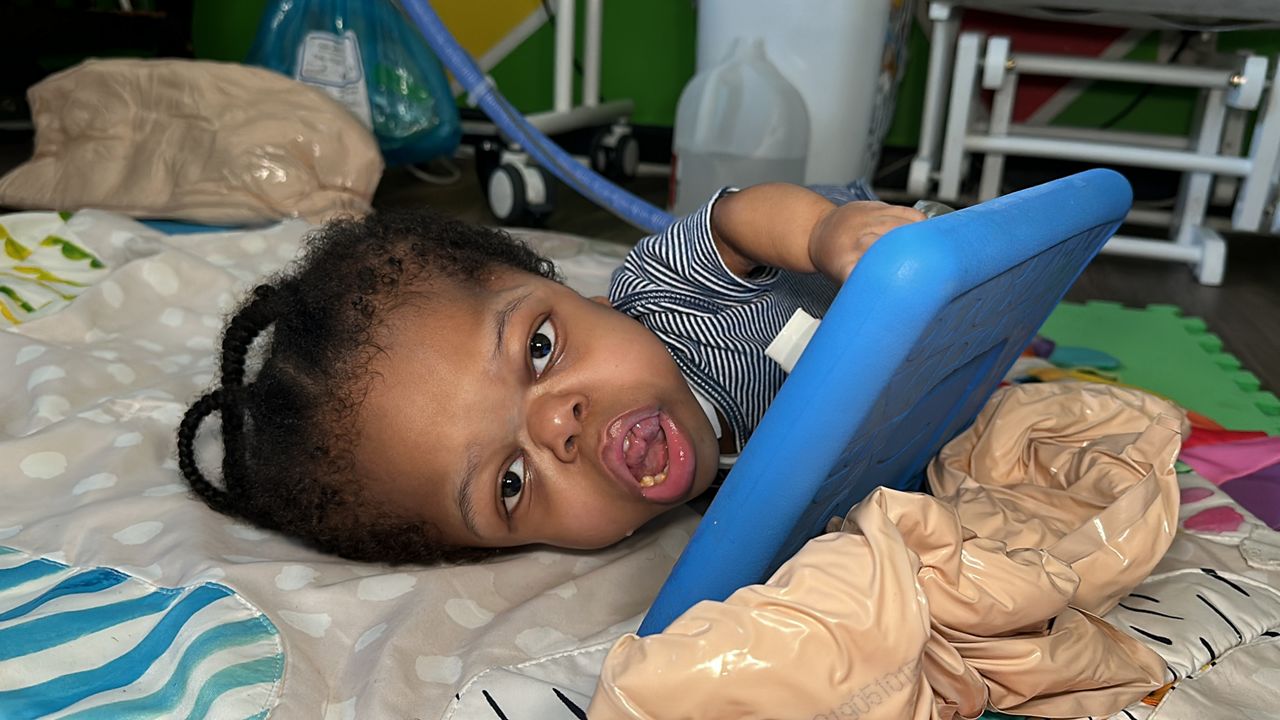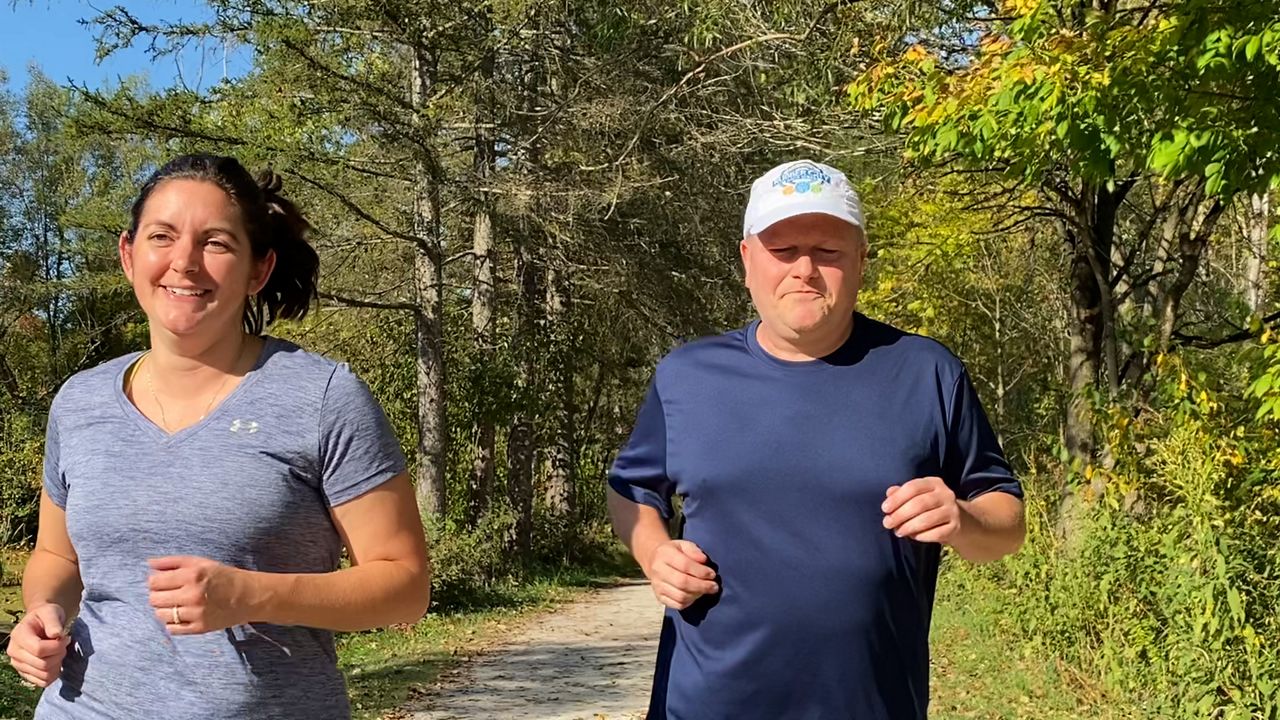OHIO — There’s a saying, "Where there’s a will, there’s a way." Aaron Reistad, 34, proves it every single day.
He loves working out. On any given day, you’ll find him in the lead in a Crossfit class doing exercises like bar muscle ups, wall climbs, wall balls, and cleans or find him running the streets of Columbus with the Grandview Running Club. He’s a shockingly good athlete, but what tends to shock people even more is the fact that he's legally blind.
“The way I describe my eyesight is like looking through frosted glass or fog glass, and then there being a bright light on the other side,” Reistad said.
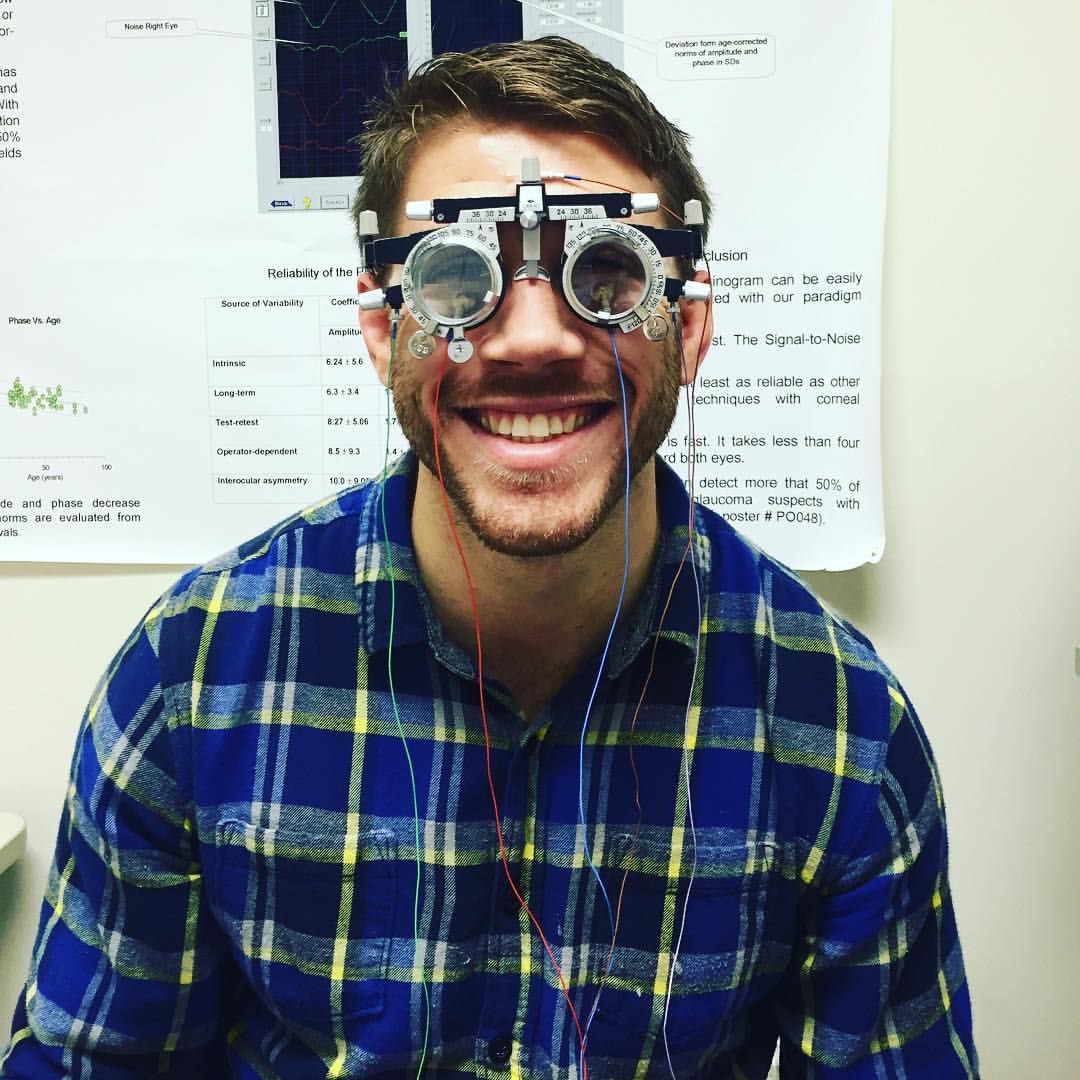
For the first two decades of his life, Reistad had 20/20 vision and had never worn glasses or contacts, only to suddenly one day have difficulty reading the text on his phone and seeing the color of street lights. In 2014, he was diagnosed with Leber’s Hereditary Optic Neuropathy. The rare genetic condition has no known cure. It took almost all of his sight when he was just 23 years old.
“I was really scared,” Reistad said. “I was incredibly angry and sad and frustrated and confused and, you know, going through all the stages of grief.”
At the time, he was in grad school working to get his master’s degree. He could have given up, but said he decided to take control. He finished his master’s degree, moved states and got a job. With a lot of patience, he’s continuously learned to adapt.
“Life is 10% what happens to you and 90% how you respond to it,” Reistad said. “I’m not going to allow my disability to define me, but I’m going to define my disability.”
He started Crossfit about a year before he lost his vision and said it’s been a constant relief in times that feel chaotic. It’s allowed him to feel capable and independent, he said, and just like everyone else.
“It's a space where I kind of forget about my disability and just allows me to just be me,” Reistad said.
Reistad seeks out discomfort. He never shies away from trying new things. He hikes, rock climbs, snowboards and even competes in Crossfit competitions with sighted individuals. A coach will read the meters or calories to him while he’s on a bike or rower, and he has a tether that allows other athletes to guide him when there’s running involved.
“This is a tether which allows Luke to guide me, and me to run at full speed, and he can guide me around puddles and cars and holes, hopefully,” said Reistad. “There have been some accidents along the way, some blood, some injuries, but I always come back.”
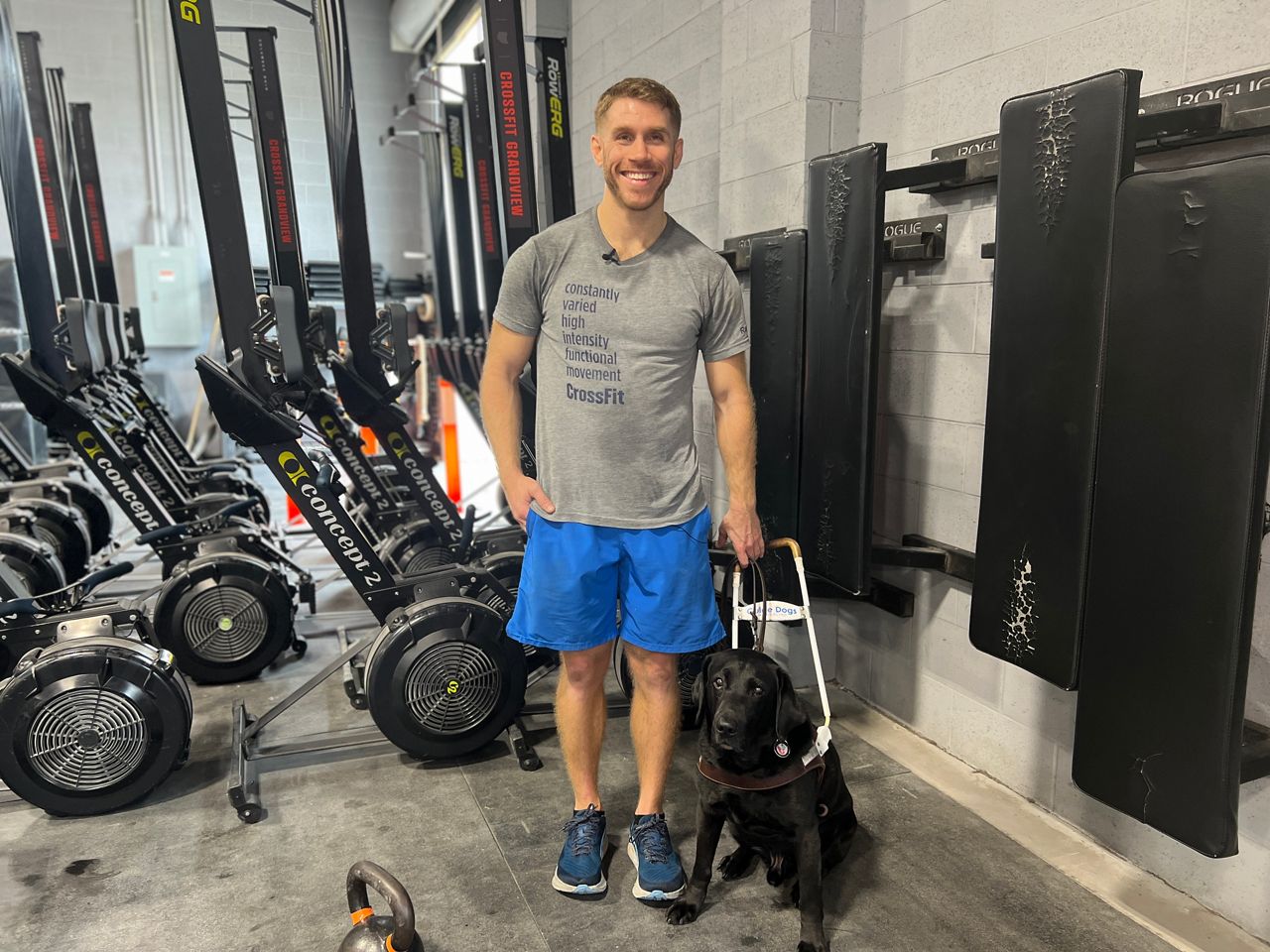
Brandon Couden, the owner of Crossfit Grandview where Reistad works out, said he’s been involved with Crossfit for about 18 years and has never seen anyone like Reistad.
“He is the first blind athlete that I’ve had, so I think his story is really unique. And being blind presents a lot of challenges in CrossFit and he rolls with it beautifully. I mean, he can do everything that we do in here,” Couden said. “It shows you that if you go through something that you can adapt and overcome just a major life challenge and keep doing the things you really like to do.”
Reistad’s fearlessness is natural to him, but rare for the visually impaired. A National Institutes of Health study shows blind people are twice as likely to be inactive compared to people with vision. Roanne Flom, a professor of Clinical Optometry at The Ohio State University College of Optometry, said reasons include lack of accessible facilities, transportation and fear of injury.
“Attending to their recreation needs usually isn't the first thing that comes up like that kind of makes sense, right? Because often they're worried about, how am I going to read or how am I going to go to school, how am I going to do my job, driving, you know, like the 'have to do' stuff, but once we address some of those things, it's really important that we make sure that people have whole lives and are able to thrive,” Flom said. “I think another is that if people are visually impaired, often they're at an information deficit because they have trouble accessing information. And, you know, there are a lot of better ways to access information on the internet, even for the blind and visually impaired these days, but even so, it's harder, you know, they don't happen to notice that that was a yoga studio that we just rode by and that maybe they have classes I could take. So information deficits can also be a problem.”
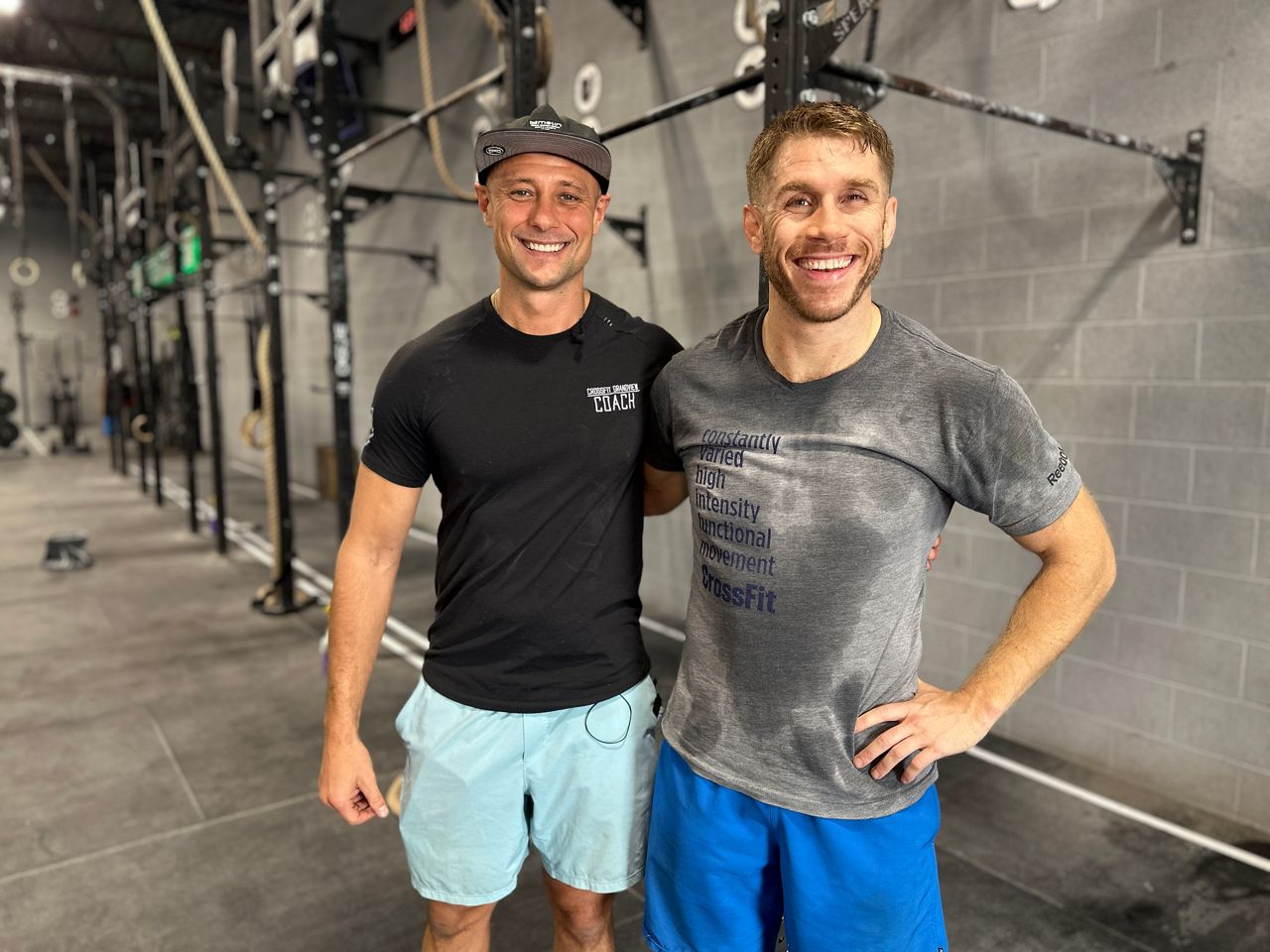
Reistad tells people he lost his sight, but he’s gained his vision. By showing up at the gym and sharing his story online, he hopes to debunk stereotypes.
“People with visual impairments are just as capable as everyone else,” Reistad said. “My life is great. I have an amazing girlfriend, wonderful family, travel a lot, you know, just have great friends. And, I don't know if there's much I would change about my life. It's pretty much, I think, what it would look like if I had my sight beside driving. But I'm all good there.”
He said everyone deals with their own unique challenges, but just like in the gym, you grow stronger with every struggle.
“All different life things are going to happen to all of us, but, you know, it's, you figure it out when you're, when you're dealt with whatever you're dealt and you do your best to make it work,” Reistad said.
Encouraging people of all abilities to take risks, he said everything is hard before it’s easy. His main message to others is to never be afraid to ask for help, because life is better when it’s done together.
“I am only here today because of all the people who, you know, grabbed my tether metaphorically and helped get me to the different finish lines that I've been trying to get to,” Reistad said. “Be willing to allow others to pick up your physical tether and your metaphorical one to help get you wherever you need to go.”
Reistad has previously traveled the country sharing his story with companies, sororities, fraternities, etc. To keep up with Reistad you can follow him on social media.






